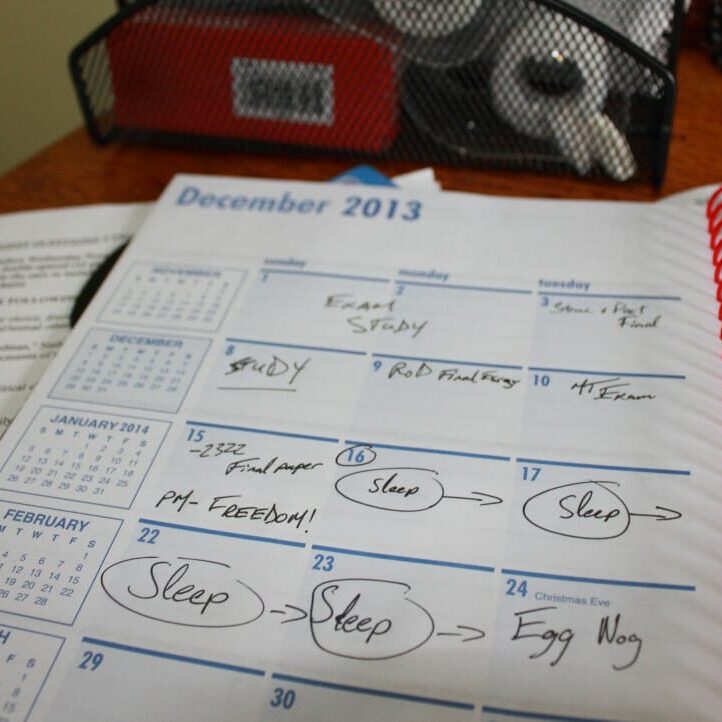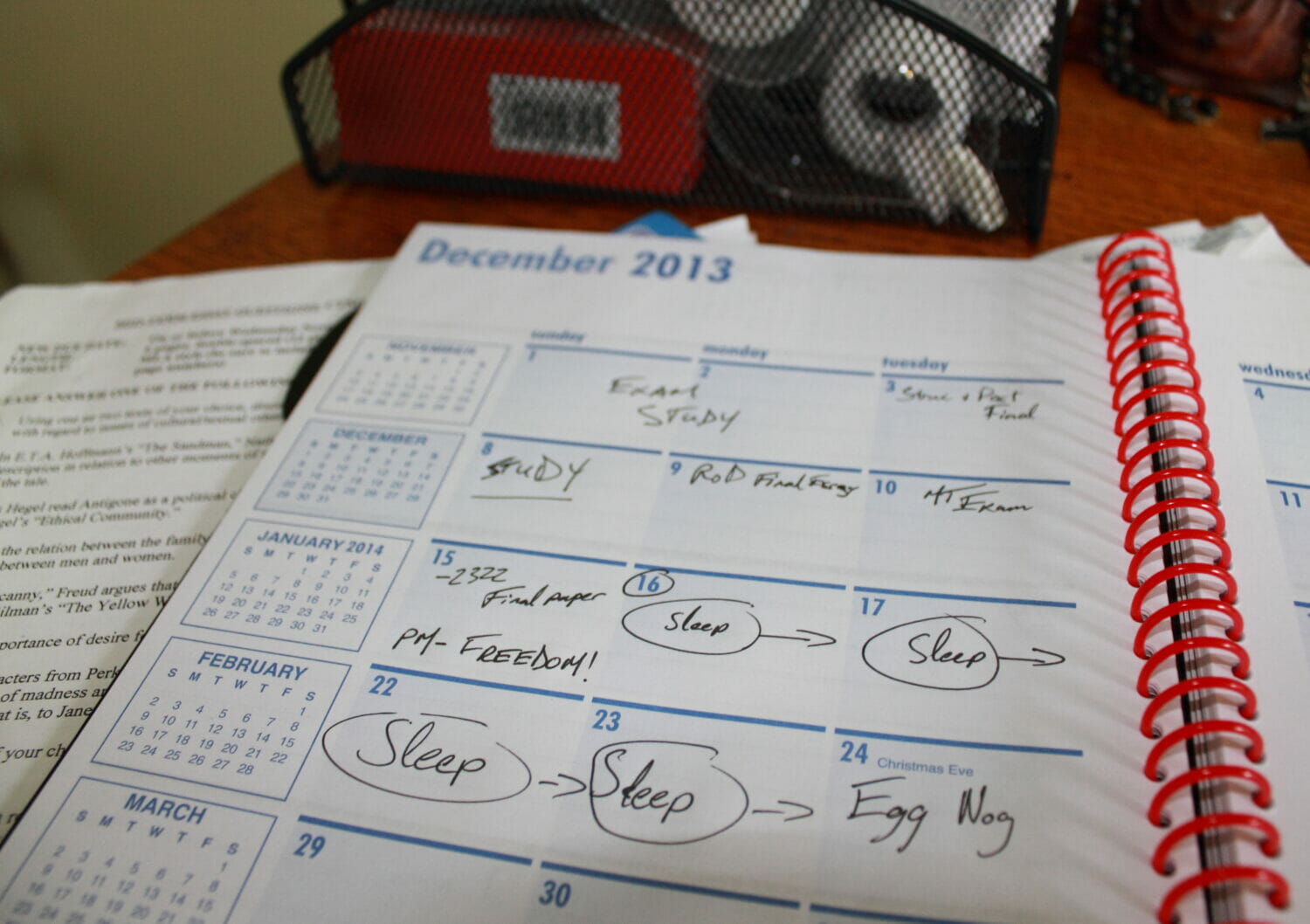
Looking at the calendar, it strikes me that our compulsive secular practices of late have begun closing the gaps between holidays. What was once regarded as religious observance of largely Christian and State calendar landmarks has become a calculated integration of respite into our collective consciousness. We all seem quite comfortable with this shift; no question, our high-stress populace needs to be told when to rest.
Some universities have fallen into step, opting to mirror spring break with a fall break, the idea being that midterms are often a milestone of fatigue for students. An academic calendar is much easier to manipulate and manage than a state calendar, but the precedent is an important one that academia chooses to support: that our considerations for structuring a calendar are best served by a behavioural analysis of those most affected by it. Dal has a different answer than some institutions. In lieu of a fall break, winter break was extended; with Remembrance Day falling on a Monday, giving students Nov. 12 off as well creates a much-sought four day respite near the end of the mid-term period.
Speaking specifically to our own case at Dal, I think extending the winter break is popular among my peers who seek to reconnect with family and friends, especially those whose holiday locale is not in the Maritimes. Furthermore, many students appreciate the income opportunities afforded by a longer break from school, especially in the holiday season when retail stores are experiencing high demand and many requests for time off from permanent staff.
It seems to me that we are holding on to a notion that the creation of holidays is more than simply throwing a bone to busy and stressed students. The allocation of time in and out of session does not speak to the continuity of our lives, and it is more than a little frustrating to encounter major facility shutdowns when trying to further one’s education; learning does not function independent of time, and an objection I raise to a dead week in the middle of a semester is the destruction of academic momentum.
Still, we cannot escape from the limitations of our physical bodies, and momentum is only useful if harnessed. To be frank, I missed half my classes in the week leading up to Remembrance Day out of frustration and exhaustion, and in this I know I am not alone. The allocation of holidays is an important step to managing the energy levels of students, but it is a bandage that may be missing the point when it comes to maximizing student output and effective action.
Reliance on holidays for rest and recreation forces the body to take a break, yet we cannot afford to engage with education with any less than our best. Put simply, I worry we teach our bodies to function at extremes when the healthiest approach is one of balance.







